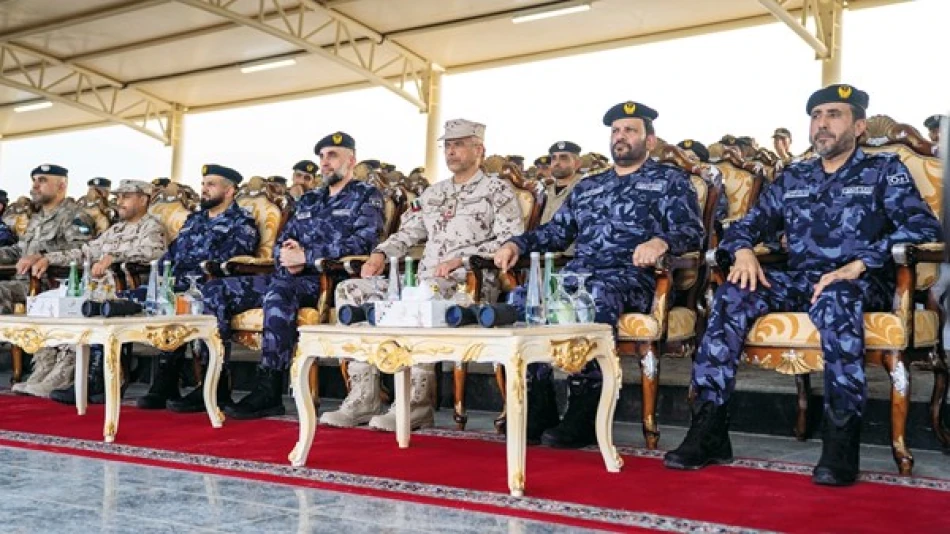
Emirati Official Witnesses Specialized Training of 22nd National Service Recruits Joining Interior Ministry
UAE National Service Graduates 263 Specialized Security Forces in Major Training Display
The UAE has demonstrated its commitment to building a highly skilled domestic security workforce as 263 recruits from the 22nd batch of the National Service program completed advanced specialized training with the Ministry of Interior. The graduation ceremony showcased sophisticated tactical capabilities ranging from VIP protection to riot control, highlighting the Emirates' strategy to reduce dependence on foreign security expertise while strengthening internal defense capabilities.
Comprehensive Security Training on Display
The ceremony, held at the Special Security Forces Training School in Seih Al Mahab area, was attended by Acting Undersecretary of the Ministry of Interior, Major General Salem Ali Al Shamsi, alongside officers from both the Ministry of Defense and Ministry of Interior, as well as families of the graduates.
The recruits demonstrated an extensive range of tactical skills acquired during their training, including advanced inspection techniques, VIP and facility protection, explosive ordnance disposal, riot control, and critical infrastructure security. Their capabilities extended to building evacuation procedures, tactical marksmanship, taser deployment, roadblock establishment, checkpoint operations, and comprehensive search protocols for individuals, vehicles, buildings, and hideouts.
Specialized Crowd Control and Internal Security
Particularly notable were demonstrations of sports venue crowd management, correctional facility security, riot suppression tactics using specialized weapons and gases, and various internal security scenarios. This breadth of training reflects the UAE's recognition that modern security challenges require multifaceted responses beyond traditional military capabilities.
Strategic Investment in Human Capital Development
The training program, conducted at both the Federal Police School and Special Security Forces facilities, combined intensive field exercises with theoretical coursework across multiple disciplines. This dual approach mirrors successful models employed by Singapore and other advanced nations that prioritize comprehensive security education.
The curriculum incorporated essential life skills including civil protection methods, K9 unit handling, legal studies, leadership development, innovation, and strategic planning. These elements distinguish the UAE's approach from purely tactical training programs, instead focusing on developing well-rounded security professionals capable of adapting to evolving threats.
National Security Through Workforce Localization
This graduation represents more than routine military training—it signals the UAE's systematic approach to security sector localization. By developing domestic expertise in specialized areas traditionally dominated by foreign contractors, the Emirates is building strategic autonomy while creating career pathways for its youth.
The program's emphasis on crisis management and disaster response capabilities aligns with the UAE's broader Vision 2071 goals, which prioritize resilience and self-sufficiency. As regional security challenges intensify, having a highly trained domestic workforce becomes increasingly valuable for maintaining stability and rapid response capabilities.
Building Tomorrow's Security Leaders
Beyond technical skills, the program emphasizes leadership development, innovation, teamwork, and adaptability—qualities essential for modern security professionals. This holistic approach suggests the UAE views these graduates not merely as operational personnel, but as future leaders who will shape the country's security landscape.
The integration of communication skills, problem-solving abilities, and self-motivation training indicates recognition that 21st-century security challenges require intellectual agility alongside physical capabilities. This forward-thinking approach positions the UAE ahead of regional competitors who may still rely on traditional, rigid security training models.
Most Viewed News

 Layla Al Mansoori
Layla Al Mansoori






